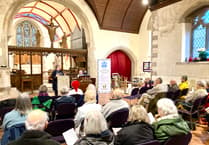People in Bath and North East Somerset are paying less council tax than they should based on the value of where they live, new figures suggest.
The Institute for Fiscal Studies has called on the Government to reform council tax, which is currently calculated using a property's estimated value in 1991.
Property values have changed wildly across England over the last three decades, and the IFS has said the system now punishes those whose house prices have not kept up with the rest of the country.
Department for Levelling Up, Housing and Communities figures show the annual cost of a band D council tax property in Bath and North East Somerset is £2,155 in 2024-25.
Meanwhile, the average house price in the area was £429,644 in April, meaning a typical household will pay around 0.5% of their property's value in council tax this year.
Nationally, this rises to 0.7%. As a result, people in Bath and North East Somerset pay less than their current house value indicates they should.
While local historical figures are not available for the area, house prices across the country were 5.6 times as big, rising from £54,000 in April 1995 to £298,000 in April this year.
Meanwhile, band D council tax has seen a 3.6-fold increase, meaning house prices have outstripped council tax by 78%.
But some areas are significantly worse off due to council tax rising disproportionately high with house prices. Meanwhile, in other places, largely in London, house price rises have outstripped council tax increases by more than four or even five times.
This, the IFS said, makes for an unjust system in which people are paying an unfairly high amount of council tax.
David Phillips, an associate director at the IFS, said it is "increasingly absurd" that council tax valuations are based on 1991 house prices.
Mr Phillips added: "Since this one and only valuation of houses, values have increased by massively different amounts around the country, meaning that at least half are now effectively in the 'wrong band'.
"Households in the North and Midlands are often in too high a band – and pay too much – while those in London and its environs too low a band – and pay too little – compared to what they would under a modernised tax.
"In other words, in its current form, council tax works against levelling up."
Labour said it has no plans to reform council tax, and is "committed to keeping taxes on working people as low as possible".
It said it would consider the impact on councils and taxpayers before making any tax decisions.



